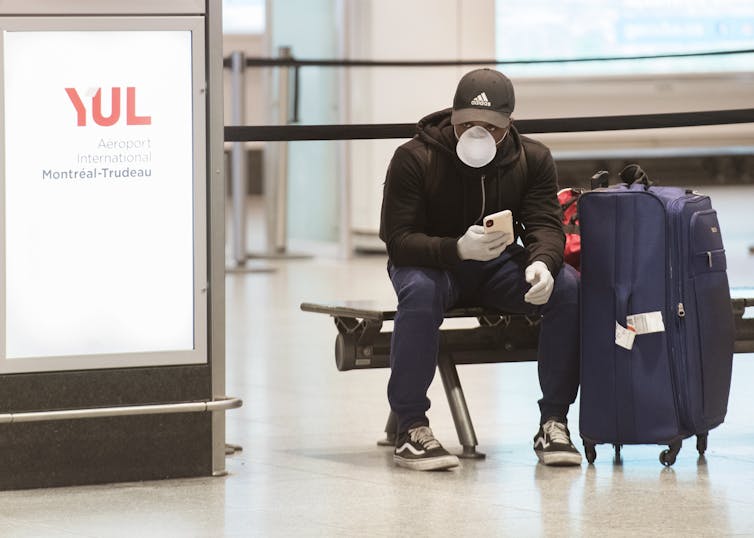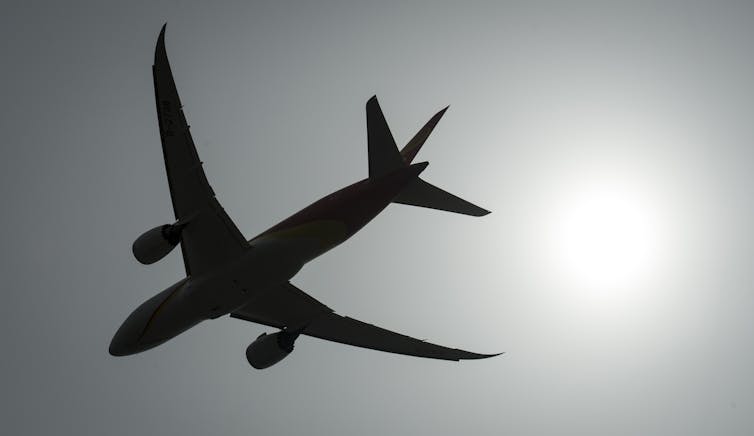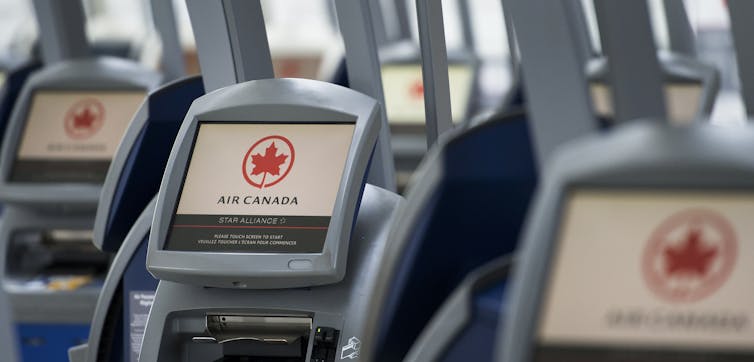In this cross-posting with The Conversation,
Despite unrelenting pressures from passenger rights advocates, intense media scrutiny and strident demands from passengers, Canadian airlines have remained largely immutable in refusing to issue cash refunds for cancelled flights.
Passengers are offered future travel vouchers and options to convert to loyalty air miles. Airlines’ immediate focus is on financial survival, arguing that returning passengers’ money for cancelled flights would cause a financial catastophe.
This response is perplexing and unfair to passengers and passenger rights advocates who have mounted a vociferous social media campaign, class-action lawsuits and petitions. Yet pressure seems futile as passengers continue to struggle to get cash refunds. You need the money to pay your mortgage? Buy food? Sorry, airlines say they need your money to survive.
Unconcerned
Why are airlines not responding to customer demands for refunds? They seem largely unconcerned about the long-term implications of their stance and the risk of alienating passengers. Surely they care about their reputation and the trust and loyalty of passengers? Isn’t that why they have airline loyalty plans?
One possible explanation is what’s known as strategic or management myopia, where companies and their executives appear to forget the long-term implications of their actions.
This myopia can impede a company’s ability to foresee future challenges because most of their efforts are focused on immediate survival. Businesses may abandon their competitive goals — like growth, capturing a bigger market share, customer loyalty and trust, retention and repeat purchases, all necessary for long-term profitability — in favour of immediate survival at any cost.

Strategic blind spots can cause companies to disregard important information or to disconnect from customers’ needs. A failure to respond to market and consumer shifts can threaten the survival of an otherwise successful company.
Examples include Polaroid, which lost its monopoly on instant photography, and Kodak’s failure to consider the changing demands of customers as digital photography took off.
So what leads to myopia in a successful industry?
People have no choice
The Canadian airline marketplace is generally considered a duopoly, with Air Canada and WestJet dominating the marketplace. These two airlines capture much of the market share, leaving consumers with restricted choices.
But market dominance could lead the airlines to become victims of their own success and cause them to ignore important information, or fail to respond appropriately to market and consumer shifts. Few other industries would be allowed to keep customer deposits for services and products they are unable to deliver.
Airlines see the future as an opportunity for continued success. According to the airline industry, they are expecting a doubling of global air travellers over next two decades.
While the COVID-19 crisis is likely to impact this projection, airlines are expecting to recover to pre-pandemic levels in two years and to benefit from growth in the future.
Support from powerful players
Canadian airlines seem to have backing of the Canadian government and the national transportation agency, which appear to have voiced their support for the airlines’ refusal to refund cancelled flights and issue vouchers instead.
The Canadian Transportation Agency’s statement on vouchers indicates:
“While any specific situation brought before the CTA will be examined on its merits, the CTA believes that, generally speaking, an appropriate approach in the current context could be for airlines to provide affected passengers with vouchers or credits for future travel, as long as these vouchers or credits do not expire in an unreasonably short period of time (24 months would be considered reasonable in most cases).”
The federal government appears to sympathise with airlines’ significant drop in revenue due to COVID-19 and the need to use customers’ payments to stay afloat.
The government’s focus on solvency is evident in its intention to provide a bridge credit facility to help them survive.
Airlines, meantime, are mounting corporate citizenship and public relations campaigns to demonstrate how they’re doing their part during the crisis through repatriation flights, shipping medical supplies and other corporate citizenship activities. They’re also highlighting their safety measures and introducing meal plans and customer care kits. Passengers, however, are pushing back against social media posts with consistent demands for refunds, which can reduce the impact of these PR efforts.
Passengers facing financial hardships feel they’re being compelled to give interest-free loans to help airlines survive the pandemic. While business travellers are likely reimbursed for the cost of flights, individual passengers are out of pocket.
Canadian airlines are actively resisting refund requests both nationally and internationally, despite escalating complaints.
But refunding fares for cancelled flights would garner good will. And airlines may soon not have a choice as powerful organizations take up the fight for refunds. The EU Commission, for example, has recently launched legal action against 10 countries over the failure of airlines to reimburse customers for cancelled flights.
Airlines need passenger trust and loyalty
Passengers need to know they can give their money over to airlines and trust they’ll be safe on board. To recover, airlines will also need the passengers’ loyalty. While there is some understanding that passengers will use airlines for unavoidable travel, loyalty will likely be affected.

Airline loyalty programs not only retain a valuable customer base, they can also be used to provide liquidity during a crisis.
A demonstration of customer care, empathy and responsiveness can help build consumer good will, which airlines will need for their post-pandemic recovery.











